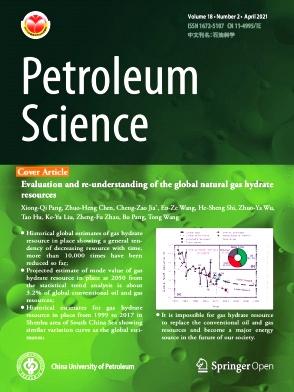A survey on multi-objective, model-based, oil and gas field development optimization: Current status and future directions
IF 6
1区 工程技术
Q2 ENERGY & FUELS
引用次数: 0
Abstract
In the area of reservoir engineering, the optimization of oil and gas production is a complex task involving a myriad of interconnected decision variables shaping the production system's infrastructure. Traditionally, this optimization process was centered on a single objective, such as net present value, return on investment, cumulative oil production, or cumulative water production. However, the inherent complexity of reservoir exploration necessitates a departure from this single-objective approach. Multiple conflicting production and economic indicators must now be considered to enable more precise and robust decision-making. In response to this challenge, researchers have embarked on a journey to explore field development optimization of multiple conflicting criteria, employing the formidable tools of multi-objective optimization algorithms. These algorithms delve into the intricate terrain of production strategy design, seeking to strike a delicate balance between the often-contrasting objectives. Over the years, a plethora of these algorithms have emerged, ranging from a priori methods to a posteriori approach, each offering unique insights and capabilities. This survey endeavors to encapsulate, categorize, and scrutinize these invaluable contributions to field development optimization, which grapple with the complexities of multiple conflicting objective functions. Beyond the overview of existing methodologies, we delve into the persisting challenges faced by researchers and practitioners alike. Notably, the application of multi-objective optimization techniques to production optimization is hindered by the resource-intensive nature of reservoir simulation, especially when confronted with inherent uncertainties. As a result of this survey, emerging opportunities have been identified that will serve as catalysts for pivotal research endeavors in the future. As intelligent and more efficient algorithms continue to evolve, the potential for addressing hitherto insurmountable field development optimization obstacles becomes increasingly viable. This discussion on future prospects aims to inspire critical research, guiding the way toward innovative solutions in the ever-evolving landscape of oil and gas production optimization.
求助全文
约1分钟内获得全文
求助全文
来源期刊

Petroleum Science
地学-地球化学与地球物理
CiteScore
7.70
自引率
16.10%
发文量
311
审稿时长
63 days
期刊介绍:
Petroleum Science is the only English journal in China on petroleum science and technology that is intended for professionals engaged in petroleum science research and technical applications all over the world, as well as the managerial personnel of oil companies. It covers petroleum geology, petroleum geophysics, petroleum engineering, petrochemistry & chemical engineering, petroleum mechanics, and economic management. It aims to introduce the latest results in oil industry research in China, promote cooperation in petroleum science research between China and the rest of the world, and build a bridge for scientific communication between China and the world.
 求助内容:
求助内容: 应助结果提醒方式:
应助结果提醒方式:


